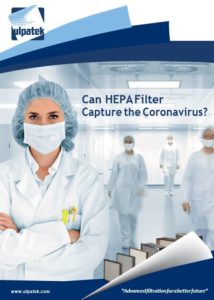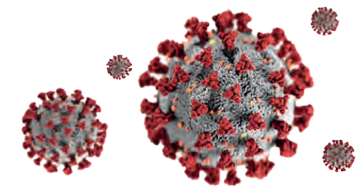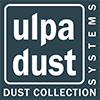Regarding the Coronavirus (COVID-19) epidemic, the most common question asked about filtration is that “Can HEPA Filter capture the viruses?” The answer to the question; Yes, HEPA Filters captures the viruses within their efficiency value.
HEPA filters; uses in hygienic applications such as hospitals, pharmaceutical factories, food and beverage production facilities. In hospitals, especially operating rooms, intensive care rooms, isolation rooms, biosafety cabinets are the usage areas.
Particulate Matter (PM)
In the atmosphere, Industrial dusts, pollen, spores, bacteria, molds, respirable particles, various fumes and contaminants such as viruses with different particle sizes called “particulate matter” are exist.
Indoor Air Quality (IAQ)
In order to achieve the desired indoor air quality, the first thing that needs to be done is to have efficiency filtration by considering the dimensions of the
pollutants.
Particle (Virus) Size
Particles of 1 μm or smaller sizes pose a greater risk for human health. The sizes of viruses among these pollutants, which we refer to as particulate matter, are in the range of 0.02 to 0.4 microns. Coronavirus is in the size range of 0.08 to 0.16 microns.
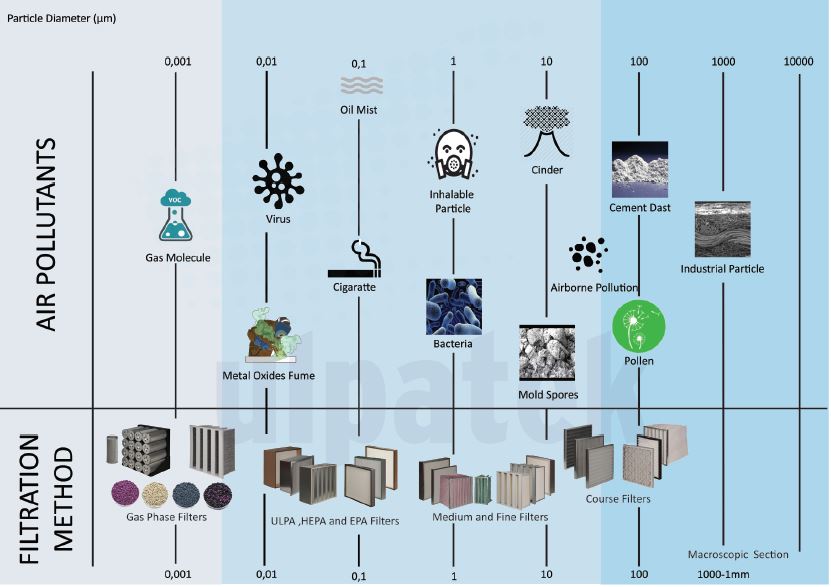
MPPS
MPPS refers to the particle size that is most difficult to capture and this value is between 0.1-0.2 microns. The standard determines efficiency based on this critical value. We can say that particles smaller or larger than MPPS are captures at higher efficiency compared to MPPS.
MPPS: Most Penetrating Particle Size
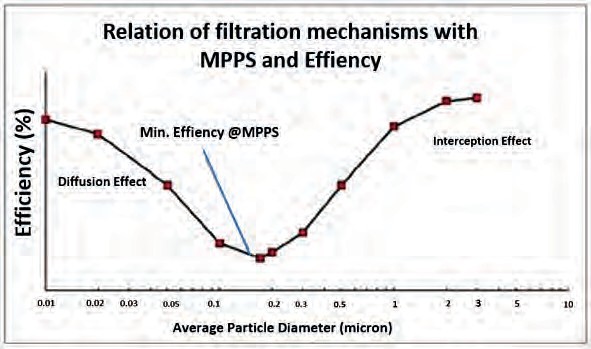
HEPA Filter Efficiency
The minimum efficiency of HEPA filters are 99.95% for class H13 and 99.995% for class H14 at most penetrating particle size (MPPS) according to the EN1822 standard.
We can give an example to explain what removal efficiency means;
- The maximum number of particles that can pass through H14 filter is 5 from 100,000 particles of MPPS (0,005×100.000)/100 =5)
- The maximum number of particles that can pass through H13 filter is 50 from 100,000 particles of MPPS (0,05×100.000)/100 =50)
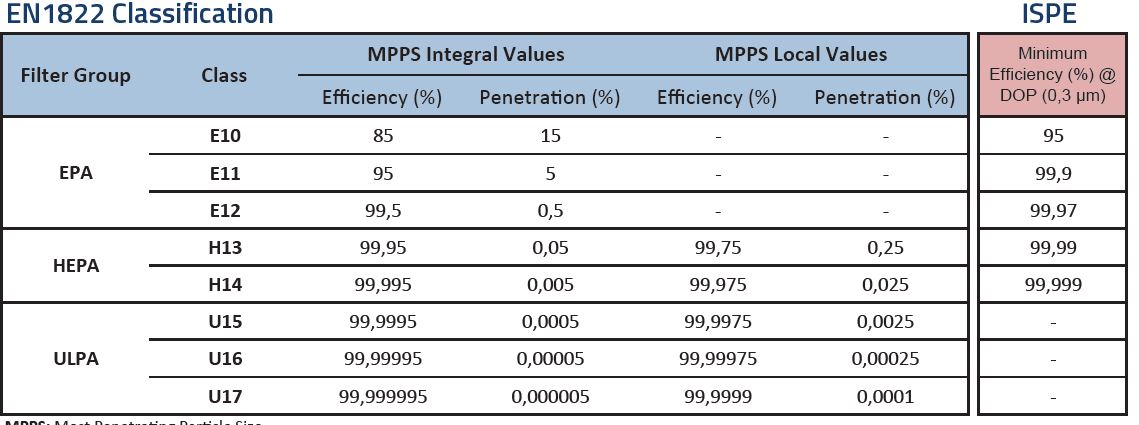
Therefore, similar particulate pollutants such as viruses can be filtered and their harmful effects reduced by using HEPA filters which are applied correctly and validated.
However, HEPA filters alone are not enough to protect against virus. In addition, parameters such as temperature, humidity, pressure, sound intensity, vibration, and static electricity should be taken under control.
For this reason, all the warnings of the experts should be followed in order to protect from hazardous viruses that cause an epidemic.

